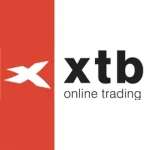Use filters to find your best broker
An Overview of Online Trading in the UK
Online trading is booming in the UK. You can now quickly capitalise on market trends and manage your own investments. While day trading can seem difficult, it’s manageable with the right skills.
Jesse Livermore, who made over $100 million from trading, relied on his instincts and observations. His success came from analysing market trends and timing his trades. This was nearly a century ago before we had today’s advanced tools.
Today, we benefit from cutting-edge platforms, real-time data, and automated systems. These tools make trading smarter and faster. You can access global markets and make informed decisions from your phone or computer with the right resources.
There are many online trading platforms in the UK, each with unique features. Our guide will help you navigate this, covering how to start trading, research opportunities, reduce fees, and set up your account.

How to Start Trading UK
Trading in the UK on the London Stock Exchange (LSE) should be easy. Yes, trading has become faster and more accessible, yet the complexity remains. You must educate yourself on market movements, regulations, and strategies to stay ahead.
Before you start trading, you need to understand what it means. Trading involves buying and selling securities like shares, forex, options, etc., over a relatively short period. You do so with the hope of making a profit on each trade and accumulating them, making significant gains over multiple trades.
The basic steps of trading are as follows:
Research Markets
The UK capital market is vast, offering a range of assets to trade. It’s important to choose the asset that interests you most and then select the appropriate market. Available assets include company shares, currency pairs, indices, commodities, options, futures, and cryptocurrencies. You can trade these assets across different markets, including the stock market, foreign exchange (forex), commodities market, or derivatives market.
Choose a Broker
You may ask why you need a broker. As an individual, you can’t go directly to the stock market and buy the financial securities you need. You will only need to go through a broker specifically licensed to interact with the exchanges. But it’s critical to select a broker that suits your trading style. Key factors include fees, trading platforms, and market access.
Set Up a Trading Account
Once you choose your broker, create and verify your account. You’ll need to comply with the AML and KYC regulations by providing proof of your identity. This may sometimes include providing proof of address and valid registration documents like ID or DL.
Start with a Demo Account
As a beginner, take advantage of the broker’s demo account. These allow you to access the real market but without using real money. Use this opportunity to familiarise yourself with the platform and sharpen your strategies. It’s also here that you develop trading strategies. Develop a budget and trading plan based on your goals and risk tolerance. Also, identify the type of trades you want to make. Though you won’t make any money, you’ll develop your skills and learn the ropes of trading.
Start Trading
After becoming comfortable with the platform, deposit funds into your trading account. Ensure the platform offers secure and convenient payment methods. Execute your first trad and stick to your strategy to avoid emotional decision-making. Like Jesse, keep your eyes on the market news and trends. Successful traders often follow financial news, economic calendars, and expert analysis. Also, use the risk management tricks you develop while using a demo account. Tools like stop-loss orders should help you to limit potential losses.

How BrokerRaters Can Help
BrokerRaters provides detailed, impartial reviews of brokers and trading tools. Our Compare Brokers feature allows you to compare different brokers side by side. We consider important aspects like fees, available markets, customer service, and trading tools. This comparison can help you narrow down the choices and find the broker best suited to your needs.
We also create educational guides like this, tailored to beginners and experienced traders. These guides cover everything from basic trading concepts to advanced strategies. The idea is to impart knowledge and trading skills.
You can also take advantage of our BrokerRaters Awards. We acknowledge outstanding brokers in terms of performance based on categories. So, you’ll find the best for …. in our listings. These categories include customer service, innovation, and trading platforms. Our awards help you identify the brokers that have excelled in specific key areas.
Online Investing in the United Kingdom
Online investing and trading are closely related but differ in terms of the duration spent holding the assets bought.
For trading, whether swing or day trading, you hold the asset for a relatively short period. In trading, you intend to make a profit from market price changes. So, you make many trades and accumulate the gains from the price volatility.
On the other hand, in investing, you buy and hold assets for a longer term, aiming for growth. You hold the assets for months or years. Either you invest in a company at a tender age and watch it grow over the years or invest in established companies with long-term growth potential. You target an increase in asset value over time, either through share price or dividends. Typically, you make a large profit from a few trades.
The same assets we trade are also popular investment options. They include stocks, bonds, mutual funds, and exchange-traded funds (ETFs).

How to Start Investing UK
Investing in the UK is easier than ever, thanks to a variety of online platforms. The procedure is not very different from trading, except for a few steps. But you need to be clear about your investment goals as they inform your plan.
Here is the step-by-step guide on investing in the UK:
Understand Your Financial Goals
What do you intend to achieve with your investment? It could be retirement, a house or car, or long-term wealth. Your goal shapes your investment strategy and time horizon. Generally, investments perform better over longer periods. Know how long you’re willing to leave your money invested.
Choose an Investment Platform
Many online investment platforms cater to different needs. Consider factors such as fees, investment options, and customer support.
Set Up an Account
Much like trading, you’ll need to create an account and verify your identity. Most platforms require basic personal information and follow KYC regulations.
Pick and Diversify Your Investments
A well-diversified portfolio reduces risk. Pick different asset classes, such as stocks, bonds, and ETFs. You can also diversify your investments by region, like investing in the EU, China, and the US, as well as emerging markets like Brazil.
Track Your Portfolio
Monitor your investments. Since investors are not traders, we don’t expect you to make frequent changes. Resist the urge to respond to short-term market fluctuations.
Tax-Free Investing with a UK ISA
One of the best ways to invest in the UK is through an Individual Savings Account (ISA). An ISA allows you to invest up to a certain limit each year without paying tax on your returns. This makes it an excellent vehicle for long-term growth, especially for those aiming to save for retirement or major life goals.
There are several types of ISAs available:
- Cash ISA – Savings account where interest is tax-free.
- Stocks & Shares ISA – Invest in stocks and bonds with tax-free capital gains and dividends.
- Lifetime ISA (LISA) – Helps you save for retirement or a first home, offering a government bonus on your contributions.
Guide to Mobile Trading/Investing Brokers & Apps
The rise of mobile apps has transformed trading and investing. They have given you the flexibility to manage your portfolio on the go. Today, mobile apps come with powerful features, including real-time data and advanced charting tools. They make it easy to access global markets. But with so many apps available, how do you choose the right one?
How Do We Select the Best Trading Platforms?
At BrokerRaters, we carefully evaluate each trading platform based on several factors to help you find the one that best fits your needs.
Safety: The platform’s security starts with a licence and then its security protocols, such as how it protects client data and funds.
Payment Methods: The best brokers offer a variety of secure and convenient deposit and withdrawal options.
User Reviews: We gather feedback from actual users on the Play Store, App Store, and Trustpilot. We love to hear about their experiences and see if these platforms live up to expectations. User reviews give insights into customer service, platform reliability, and ease of use.
Fees & Commissions: We examine transaction fees, account maintenance costs, and other hidden charges. Transparent pricing makes a broker stand out.
Available Markets: Some platforms specialise in forex, while others focus on stocks, commodities, or cryptocurrencies. We prefer platforms with diverse market access.
Educational Resources: Quality brokers offer educational tools, from webinars to tutorials. We value platforms that help you grow as a trader or investor.
Regulations in the United Kingdom
The UK financial market is heavily regulated, with the FCA (Financial Conduct Authority) as the regulatory body. The FCA ensures that brokers are transparent, secure, and fair, safeguarding both traders and investors.
By choosing an FCA-regulated broker, you gain an extra layer of protection against fraud and unfair practices. This regulation helps ensure that your funds are secure and that brokers operate in a reliable and trustworthy way.
FAQs
Yes. You can legally trade various financial instruments, including stocks, forex, and commodities. But always use an FCA-regulated broker.
Yes. You can invest in stocks, bonds, or through an ISA. The UK market offers numerous opportunities for investors.
The tax implications include capital gains tax and dividend taxes. But, ISAs offer tax-free investing up to a specific limit, and capital gains allowances also apply.
Key factors like fees, available markets, platform reliability, and security are important. They ensure a smooth and safe trading experience. Keep these elements in mind when making your choice. Our comparison tools and expert reviews can help you find the best broker.
Both trading and investing involve risks. These risks include market volatility, losses, and the potential for broker bankruptcy. However, the FCA regulation helps minimise the risks of fraudulent brokers.
In the UK, you generally cannot open a trading or investment account until you are 18. However, parents can set up Junior ISAs for their children. Such an account allows for tax-free savings and investments until they turn 18.















